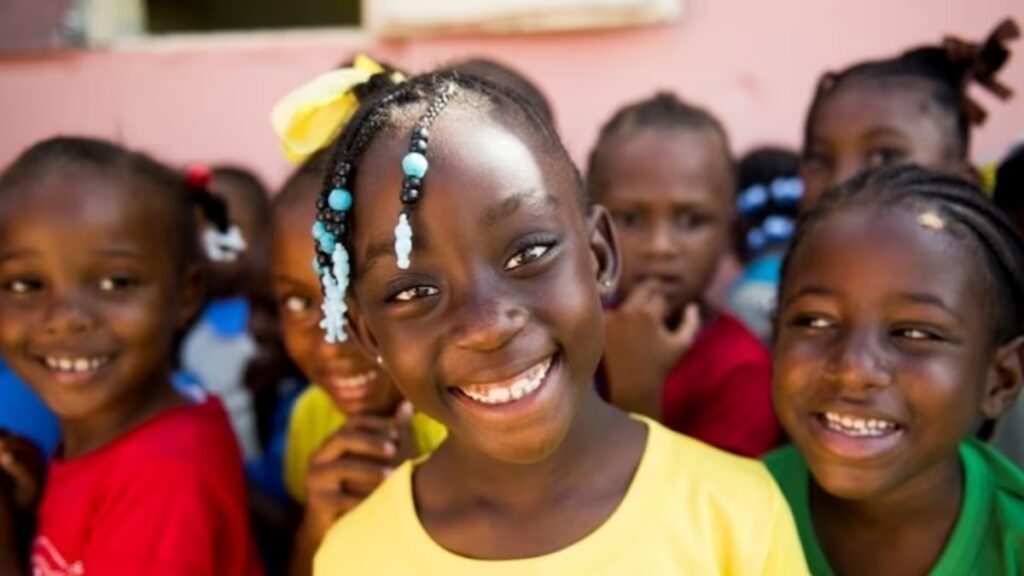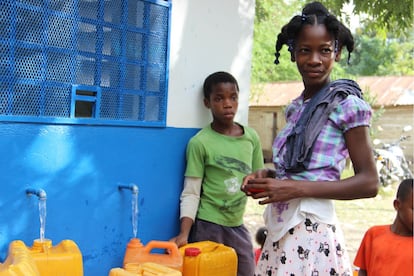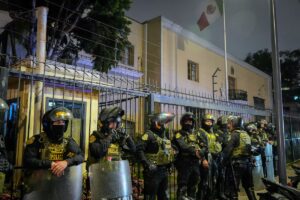
Haiti, which has almost 11.8 million inhabitants, is experiencing an alarming reality. In recent years, insecurity, political instability and poverty have thrown the Caribbean country into a prolonged crisis that seems to provide no respite. Added to this are extreme meteorological events such as Hurricane Melissa, whose recent passage caused dozens of deaths. According to the World Bank, the economy contracted by 4.2% in 2024 and another 2% decline is expected in 2025 if security, inflation and investment do not improve. In this context, humanitarian aid continues to be essential, but it is not sufficient: Haiti runs the risk of remaining trapped in a state of perpetual emergency if there is no recovery of the business sector.
In March 2025, the World Bank Group unveiled a new strategy for Haiti that seeks to balance immediate relief with building a stronger economic foundation. The roadmap provides approximately $320 million in funding to strengthen governance, create jobs and preserve essential institutional capacities. The emphasis is placed on supporting local businesses, providing them with tools and financing so that they not only survive, but can be engines of stability.
Some concrete examples illustrate this approach. This year, IFC – a member of the World Bank Group – and IDB Invest announced a joint investment of $13.5 million in Solengy Haiti, a local solar energy company. The project involves the installation of ten megawatts of photovoltaic panels and a 20 megawatt-hour storage system to supply homes, schools, hospitals and small industries. Structured by IFC, the operation, beyond the numbers, means that thousands of families who depend on expensive and polluting diesel generators will be able to count on more stable and cleaner electricity.
Another case is that of the Caribbean Bottling Company (CBC), a drinking water supplier in Port-au-Prince. In 2019, IFC invested in the company to expand its factory and in 2025 supported it again in an energy transition project that involves the installation of solar panels and a battery system of up to five megawatt hours. The objective of this new investment is to reduce costs, improve efficiency and minimize greenhouse gas emissions. In the midst of the political crisis, a drinking water company also becomes an example of environmental sustainability.
Even agriculture, a pillar of the Haitian economy, has not been left aside. In 2024, the IFC developed a consultancy program to strengthen horticulture and improve the income of small producers. According to the Haiti Private Sector Diagnostic, prepared by the IFC and the World Bank in 2021, the agricultural sector has enormous growth potential if it can overcome problems with financing, infrastructure and market access. The report also identified opportunities in renewable energy, digitalisation and the textile industry, one of the country’s largest formal employers thanks to trade advantages with the United States.
In a context of severe fiscal constraints, public-private partnerships (PPPs) are presented as another effective mechanism to stimulate investment. In this context, IFC is working with the National Directorate of Water and Sanitation (DINEPA) in structuring a tender to identify a qualified private operator to provide drinking water to Las Caobas, in rural Haiti. Weeks ago, IFC signed a memorandum of understanding with the Ministry of Economy to promote, through a PPP, the generation of renewable energy in Los Cayos, the third most populated city in the country, where electricity is available only a few hours a day.
The challenge is monumental. According to World Bank data, the unemployment rate in Haiti has reached 15% in 2024. Furthermore, more than 60% of the population (6.3 million people) lives in poverty and 24% (2.5 million) in extreme poverty. Institutional fragility, armed gang violence and the lack of basic infrastructure increase the costs of doing business and discourage investment. But where the market alone is not suitable, IFC and its partners seek to open spaces through risk-sharing mechanisms, loans and technical advice to demonstrate that investing in Haiti is not a losing bet.

It is clear that it is not a question of replacing humanitarian aid, which remains essential for millions of Haitians, but of integrating it with projects that offer a horizon. The new strategy of the World Bank Group insists on this double dimension: alleviating the emergency and, at the same time, laying the foundations for more inclusive and sustainable growth. At the center of this effort is the IFC, which has become the arm responsible for accompanying Haitian companies to take the leap into the midst of the chaos.
The inevitable question is whether private investment can thrive in a country without minimal political stability. Despite the risks, the cost of not investing in Haiti is even greater. Every megawatt of solar energy, every liter of bottled water, every agricultural producer who manages to improve their income are small victories that, accumulated, can make a difference. For a young Haitian who dreams of a stable job or for a mother who wants to turn on the light without depending on a generator, these investments are not abstract figures, but glimpses of dignity.
In Haiti, where hope is usually measured in days and not decades, betting on the local private sector is a way to shape the future. The IFC, in collaboration with other institutions of the World Bank Group, has decided that reconstruction cannot wait for all the storms to calm down. If the word “investment” could be translated into jobs, energy and basic services, perhaps Haiti could begin to emerge from the cycle of perpetual emergency.





